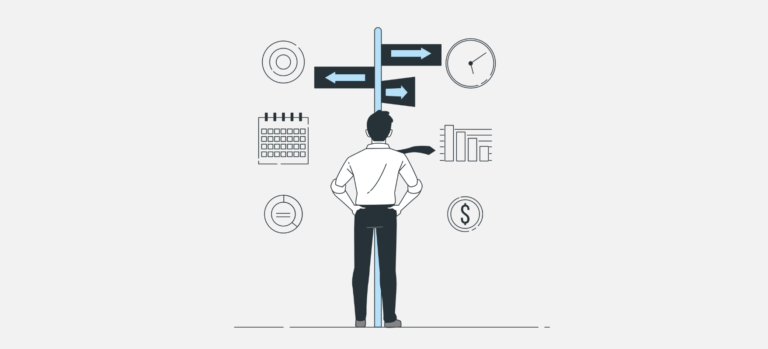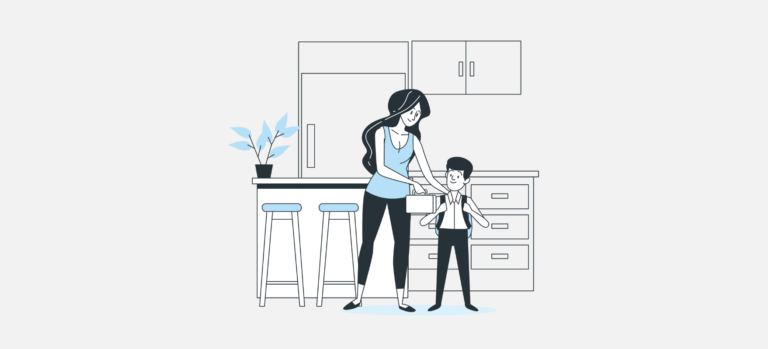CMU or LAMal: why choose?
If you work in Switzerland and live in France, you must choose between two health insurance systems: the French CMU or the Swiss KVG/LAMal. This right of option can only be exercised once, within a strict period of 3 months from the start of your activity in Switzerland. Once your choice is confirmed, it becomes irrevocable, except in the event of a major change in situation (permanent return to France, retirement with relocation, etc.).
Why is this important? Because this choice has a direct impact on :
- What you pay each month
- Where to go for treatment (France, Switzerland or both)
- And how much you'll be reimbursed
CMU is based on your income, KVG/LAMal on a fixed premium. Depending on your situation (income, family, place of care), one may be much more advantageous than the other.
If you do not take any action within the 3-month period, you will be automatically enrolled in the KVG/LAMal by the Swiss authorities. Moreover, you will no longer be able to change your decision (even if you would have preferred the CMU), and you will have to pay your KVG/LAMal premiums retroactively from the start of your contract, with immediate effect.
How does LAMal/KVG work?
LAMal is Switzerland's compulsory basic health insurance scheme. As a cross-border commuter, you can take out insurance with an approved Swiss insurer, with a status that allows you to be treated in Switzerland as well as in France.
KVG/LAMal premium amounts
Unlike the CMU, KVG/LAMal operates with a fixed monthly premium that does not depend on your income. This amount varies based on your age, the canton where you work, the insurer you choose, and the deductible (franchise) you select — the minimum deductible, often chosen by cross-border workers, is 300 Swiss francs per year.
In Switzerland, health insurance companies are required to maintain cash reserves under the strict control of the federal authorities. As a matter of principle, they cannot operate at a loss. As a result, KVG premiums for cross-border commuters have remained remarkably stable in recent years. In some cantons, basic rates have even fallen slightly after several years of stability.
KVG/LAMal healthcare coverage
Coverage is strong for healthcare in Switzerland: you are treated like a resident insured person, with a good level of reimbursement for consultations, hospital stays, and treatments, within the limits of your deductible and the legal co-payment. You have access to the entire Swiss healthcare system, known for its quality and efficiency.
At the same time, as a cross-border worker affiliated with KVG/LAMal, you are also connected to the French Social Security system through the cross-border scheme. This means you retain your rights in France: you can continue to see your general practitioner, consult specialists, or receive hospital care just like any other French insured person.
This dual access is a real advantage, especially if you live in a border area with limited medical services. It allows you to optimize your healthcare journey by choosing, each time, the fastest, closest, or most suitable option.
How does CMU work?
CMU premium amounts
Unlike KVG/LAMal, the CMU does not have a fixed premium. The amount you pay depends on your reference taxable income (RFR), calculated from your French tax notice. In 2025, the contribution represents approximately 8 to 9.5% of your RFR, after a standard deduction. The higher your income, the more you pay.
The general French Social Security system is chronically in deficit, which weakens its financial stability. In response, the government has implemented several reforms, including waves of medication delistings and increasing pressure on supplementary health insurance. Since mutual insurance has become mandatory for employees, its cost has continued to rise. If deficits persist, an upward adjustment of contributions is entirely possible.
CMU healthcare coverage
As far as healthcare is concerned, coverage is identical to that of any French insured person: you consult your usual healthcare professionals, and your costs are covered by Social Security, with the option of adding a mutuelle. On the other hand, the CMU provides less coverage for healthcare in Switzerland, and only via the European Health Insurance Card (EHIC), with partial repayments.
The CMU is often chosen by households with modest incomes or by those who receive all their medical care in France. However, be careful: the contribution is recalculated every year, which can lead to unexpected changes in case of a shift in your situation (such as an increase in income, the sale of a property, etc.).
Good to know: access to healthcare in border areas
In most border regions, it can take more than 6 months to consult a specialist in France. These areas are sometimes real medical deserts.
By choosing KVG/LAMal, you have the possibility to consult freely in Switzerland, without restriction, with direct coverage. This gives you access to a second healthcare network that is faster, more accessible, and of very high quality.
What are the similarities between KVG/LAMal and CMU?
Access to healthcare in France
Possibility of adding a complementary health plan
Whether you are covered by the CMU or the LAMal, it is possible (and often recommended) to take out a complementary mutual insurance policy to cover non-reimbursed expenses (hospitalization, dental care, glasses, etc.).
Emergency care in Europe
What are the differences between KVG/LAMal and CMU?
Contribution: fixed or proportional to income
KVG/LAMal operates with a fixed monthly premium, determined by your age, your place of work in Switzerland, and the insurer you choose. Whether you earn 40,000 or 120,000 Swiss francs per year, your premium stays the same. This system is well-suited for individuals with medium to high incomes.
In contrast, the CMU contribution is calculated based on your reference taxable income (RFR) in France. The current rate is 8% after deduction, but it can increase at any time if the government decides to adjust its funding policy. This means that if your income rises or you sell assets (such as real estate or investments), your CMU contribution can quickly go up.
Access to healthcare in Switzerland
With KVG/LAMal for cross-border workers, you benefit from full access to the Swiss healthcare system. You can freely consult doctors, specialists, or hospitals in Switzerland, with coverage equivalent to that of a local resident. This allows you to receive medical care close to your place of work.
On the other hand, CMU Frontalier only covers your care in France. If you need to consult a doctor in Switzerland, this is only possible in emergencies, and only via the European Health Insurance Card (EHIC), with reimbursement often only partial. This severely limits your freedom of choice.
Comparing CMU VS LAMal
- CMU
- KVG
- Plan type
- Contribution
- Coverage in Switzerland
- Coverage in France
- Management
- Children
CMU or LAMal: which should you choose?
The KVG/LAMal for cross-border workers is especially appealing if you're looking for a stable and predictable premium, with no link to your income. It is often more advantageous for individuals earning more than CHF 30,000 per year (which applies to a large portion of cross-border employees in Switzerland), as the premium remains unchanged even if your salary or assets increase. It is also the best option if you live in a border area with limited healthcare access on the French side, or if you want easy access to the Swiss healthcare system, known for its quality and short waiting times.
The CMU Frontalier can be a good solution if you have a modest reference taxable income, if you receive all your medical care in France, and if you are already well integrated into the French healthcare system. It provides straightforward coverage through the CPAM, with no complex procedures, but there is a real risk of rising contributions, and access to Swiss healthcare remains very limited.
Frequently asked questions
No. The right of option is irrevocable. Once you have opted for CMU or LAMal coverage, you can't go back, except in the event of a major change: for example, moving out of France, leaving your job in Switzerland, or retiring and returning to France.
If you are enrolled in KVG/LAMal as a cross-border worker, you can keep this coverage even after retirement, provided you continue to receive an AVS pension or another Swiss pension. In that case, you will be affiliated with KVG/LAMal as a retiree, with an adjusted premium. However, if you move back to France without receiving a Swiss pension, you will need to join the French Social Security system.
Like all basic health insurance schemes, the CMU only reimburses partially for dental care, glasses, or hearing aids. These expenses are largely covered by your supplementary health insurance (mutuelle). The same applies if you are insured under KVG/LAMal: having a complementary plan is essential to extend your coverage in France.
Under the CMU, your children are generally included in your coverage without any additional contribution.
With KVG/LAMal, each family member must be insured individually, but premiums for children are often very affordable. However, you must remember to enroll each child separately, as it is not done automatically.
Yes, and it is highly recommended. While the CMU provides basic coverage through the French Social Security system, it does not fully reimburse many expenses such as hospital stays, dental care, optical costs, or specialist fees with surcharges. Taking out a mutuelle (complementary health insurance) helps cover these additional costs and ensures better overall protection for you and your family.
If you do not complete and submit the right of option form by the deadline, you will automatically be affiliated to the KVG/LAMal, with retroactive effect to the start date of your Swiss contract. You will then have to pay the overdue KVG/LAMal premiums retroactively.





